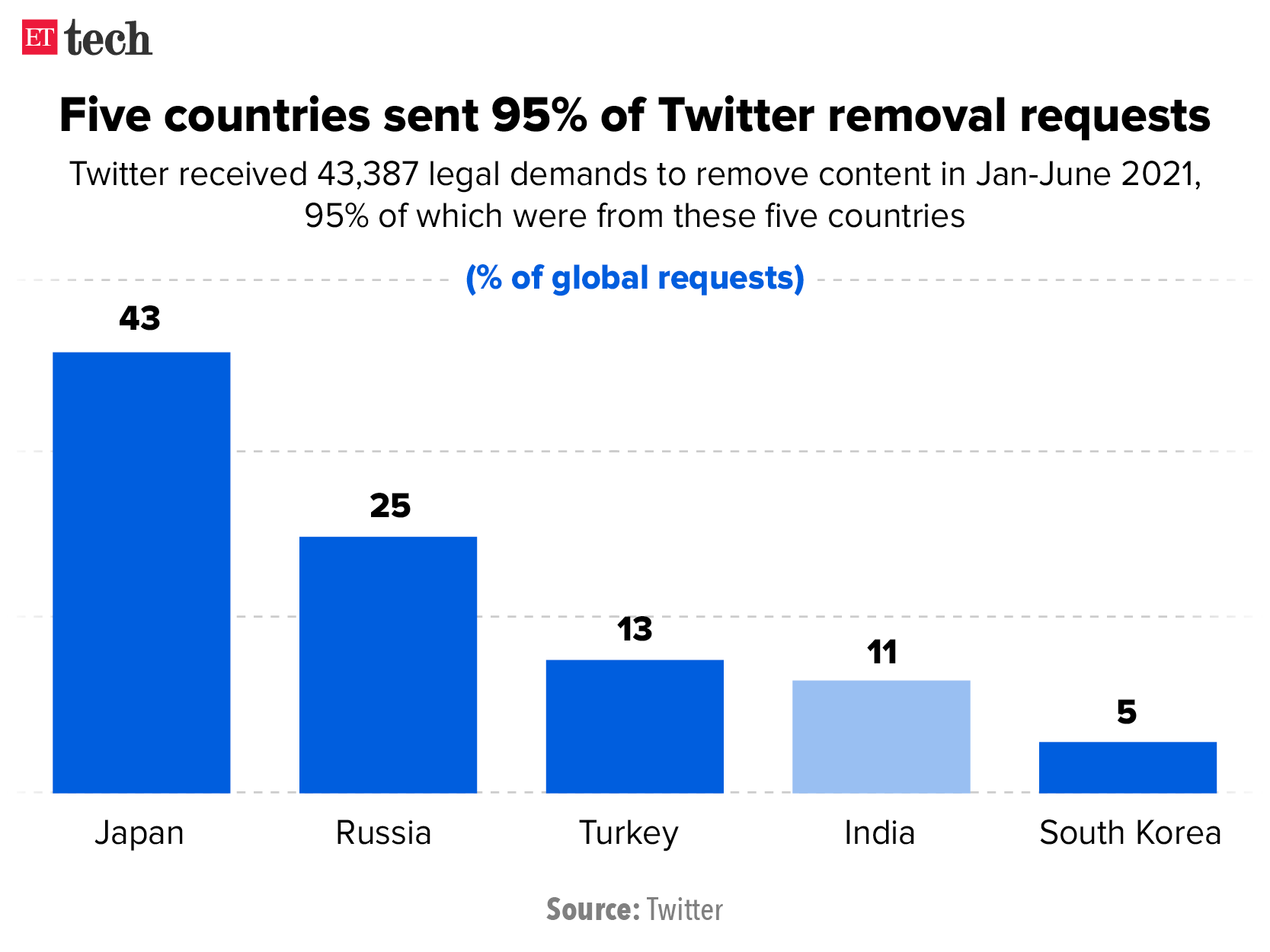Also in this letter:
- Cred forays into social commerce and group buying
- IT sector could grow to $300-350 billion in five years: Nasscom
- TCS, Infosys among most valuable IT brands globally
Got a minute? ETtech’s goal is to bring you the latest news, exclusives, and analysis from the thriving technology and startup sector, and we’re always looking to improve. You can help us do so by filling in a short survey here. Thank you!
Gig workers ride solo during third wave
India’s gig workers — the majority of whom are delivery staff for large online platforms — are raising red flags, saying their employers have failed to help them get fully vaccinated or even reimburse them for protective equipment and sanitisers amid the third wave of Covid.
What’s going on? Food delivery firms Swiggy and Zomato have Swiggy said that they encourage delivery partners to get the second dose on their own.
But a large percentage of these gig workers are only partially vaccinated and say they are facing a drop in earnings. At least four gig workers told us that online food ordering platforms have even barred those who have not taken the second dose from working.
.jpg)
A delivery partner with Swiggy in Bengaluru said, “For the first dose, the company was actively pushing for vaccination. But there was no help with getting the second dose. I got my second dose two months ago and submitted the proof but still haven’t gotten my reimbursement. If a partner has Covid, the support team calls five days after he fills in a Google form. We need assistance immediately.” He added that Swiggy was covering for loss of pay during recovery and providing insurance support.
Ecommerce companies Amazon and Flipkart, unlike the food delivery firms, are still helping their workers get vaccinated. But some of their workers said they hadn’t been provided with insurance.
.jpg)
“The company organised many vaccination camps but we still don’t have insurance facilities. They had taken our documents a year ago but there has been no word since,” said an Amazon delivery partner in Pune. Two other Amazon delivery workers we spoke to—from Pune and Bengaluru—said they also didn’t have active insurance policies.
“All associates working in our Delivery Service Partner network are provided medical insurance as part of their engagement. We are looking into this specific case to fix the possible communication gap with the associates,” an Amazon spokesperson said.
.jpg)
Why it matters: Food aggregators, e-commerce firms and other delivery-dependent companies in India employ an estimated 800,000 to one million people. Thanks to a steep rise in online commerce since the start of the pandemic, the sector has been among the largest recruiters of blue-collar workers.
Cred bets on social commerce and group buying

Cred founder Kunal Shah
Fintech firm Cred is getting into video commerce and group buying as part of its e-commerce offering Cred Store, people aware of the discussions told us.
The startup, presently valued at $4.01 billion, has already begun work on these new offerings and is likely to launch them later this year, they said.
According to an internal seller communication sent by Cred earlier this week, the fintech firm will pilot these models to “boost user engagement and thereby screen time, retention and ultimately transactions”.
What else? Cred also announced on Wednesday that it would charge zero commission to sellers and waive charges for them on the Cred Store. However, it didn’t publicly notify that it would be charging 2.1% of the product price as a payment gateway cost to merchants selling on its platform.
Crowded house: Cred is not the only company looking to adopt the group buying model. ET reported on January 11 that Tata Group-owned BigBasket has started testing its group buying model to deliver groceries beyond metros, joining the likes of Walmart-owned Flipkart, SoftBank-backed Meesho, DealShare and Udaan.
Beyond credit cards: Cred was launched in 2018 as a platform for people to manage and pay their credit card bills and earn rewards. But it has been expanding its offerings in the past two years.
Cred Store, a curated ecommerce platform for Cred members, was piloted in 2020. In less than 24 months, it has brought on board more than 600 Indian direct-to-customer and global brands, with a selection of over 5,000 products, the company said.
Cred has branched out into lending through Cred Cash and launched community-driven peer-to-peer lending with Cred Mint.
The company has also applied to the RBI for a payment aggregator licence.
Tweet of the day
IT sector could grow to $300-350 billion in five years: Nasscom

The Indian information technology sector has the potential to clock annual revenues of $300-350 billion in five years, up from $190 billion in 2020-21, industry body Nasscom has said, terming this decade a ‘techade’.
“The kind of opportunities we are seeing come up is unprecedented,” Debjani Ghosh, president of Nasscom, told us. “We do not believe in predicting the future… but if I had to take a bet I would say that in the next five years, we have a strong chance to get to around $300-350 billion [in revenue] as a whole.”
Nasscom has stopped giving number projections for the industry in the past couple of years but the industry’s strong revenue growth, demand environment, and bullish outlook perhaps prompted it to offer a projection this time.
While Indian IT companies were reporting a growth rate of anywhere between 6-7% before the pandemic, they are now forecasting annual growth rates of 15-20%, driven by the unprecedented rise in digital spending, and expect the demand to remain high in the coming years.
Growth for the industry will come not only from creating more human-centric solutions but also by expanding to markets beyond core regions of America and Europe to Africa and Asia, Ghosh said.
TCS, Infosys among most valuable IT brands globally

Tata Consultancy Services and Infosys are among the most valuable IT services brands globally, according to a report by brand valuation firm Brand Finance.
The two Indian IT firms knocked IBM out the top 3, but Ireland-based Accenture has retained its leading position, valued at $36.2 billion.
Tata Group, with a brand value of $23.9 billion, is the most valuable brand in South Asia and India’s only entry in the top 100. In addition, Tata Sons Chairman N. Chandrasekaran ranks as the top CEO in India and stands at 25th position globally in the Brand Guardianship Index 2022.
Infographic Insight

ETtech Done Deals
■ Vyapar, an accounting and inventory management startup focussed on small businesses, has raised $30 million in a funding round led by WestBridge Capital.
■ Shopkirana has raised $38 million from Info Edge, Oman India joint investment fund, Sixth Sense Ventures and other investors.
Global Picks We Are Reading
■ Nvidia preparing to walk away from Arm acquisition (Reuters)
■ Microsoft’s product chief sees PC revival as durable (Axios)
■ Three bitcoin metrics suggest a prolonged bear market is here (Bloomberg)
Today’s ETtech Morning Dispatch was curated by Zaheer Merchant in Mumbai. Graphics and illustrations by Rahul Awasthi.
























